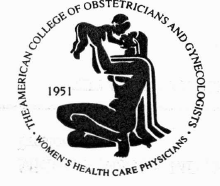American College of Obstetricians and
Gynecologists Demands Compulsory Referral for Abortion
Letter to American Senators from the President of the ACOG
30
August, 2005
A letter from the President of the ACOG to US Senators included a number of
statements concerning matters unrelated to freedom of conscience, but also asked that lawmakers force conscientious objectors to abortion to facilitate
the procedure by referral. Rather
than edit the letter or reproduce the single section of interest, which might
invite questions about editorial accuracy and context, the entire letter has
been reproduced below and the relevant section highlighted.
The Project wrote to the President
of the ACOG on this issue, eliciting a reply dated 18
October, 2005. The reply failed to account for the ethical position
taken by the ACOG. A second letter
sent by the Project was ignored, despite repeated requests for the courtesy of a
reply, the last in March, 2006.
In November, 2008 the ACOG again attempted to impose its ethical views, this
time through an opinion from its ethics committee [See
ACOG continues attacks on freedom of
conscience (2008)].

Office of the President
Michael T. Mennuti, MD, FACOQ
Department of Ob-Gyn
University of Pennsylvania Medical Center
3400 Spruce Street
Phi1adelphia, PA 19104-4283
August 30, 2005
Dear Senator:
On behalf of the American College of Obstetricians and
Gynecologists (ACOG), representing 49,000 physicians and partners in women’s
health, I urge you to adopt several provisions that would improve the health of
women and families across the nation, as you consider the FY06 Labor Health and
Human Services, and Education Appropriations bill.
We believe that women should be able to plan their
pregnancies, appropriately spacing births according to theft family goals.
Currently one half of all pregnancies, approximately 3 million, are unintended,
with 1.3 million ending in abortion. Unintended pregnancies can also pose
unnecessary health risks to women's access to family planning, funding women’s
health research and outreach, and providing medically accurate, comprehensive
sexuality education could help reduce these alarming rates and improve the
quality of women’s health care.
Continue Support for the National Fetal Infant Mortality Review
The House bill contains report language, which would ensure funding for the
National Fetal Infant Mortality Review. ACOG has had a cooperative partnership
with the Health Resources and Services Administration (HRSA) since 1990 to
manage this program, resulting in improved communication between local health
systems that work to decease the infant mortality rate.Fund the Provider’s
Partnerships Program
The House bill also encourages the HRSA to continue funding
the longstanding Provider’s Partnership program. Program finding of $500,000
would allow these partnerships to coordinate care between local health providers
and public agencies to address important issues in women’s health such as
postpartum depression or smoking cessation during pregnancy.
Increase Funding of Comprehensive Sexuality Education
The Senate bill would increase abstinence only. ACOG
believes in comprehensive sexuality education that includes education on
abstinence and contraceptives, and requests no further increase in abstinence
only education funds.
Review and Update the 4parents.gov Website with Medically Accurate
Information
The Senate bill includes language that would require the
Department of Health and Human Services to review the 4parents.gov website. In
April, ACOG called on the Department to change medically inaccurate information
on the site regarding STDs, contraception and pregnancy.
Require Doctors with Moral
Objections to Refer for Abortions
The Senate bill
would also alter the current Abortion Non-Discrimination Act language so that it
would only apply to the counseling and provision of abortion services, and not
referrals. Doctors who morally object to abortion should be required to refer
patients to other physicians who will provide the appropriate care.
Fund Detection and Treatment Programs for Perinatal Depression
Lastly, the Senate bill contains language that would
increase support for mental health needs, especially perinatal depression
(occurring during pregnancy or postpartum). ACOG strongly supports more research
funding and funding of programs to improve detection and treatment of a
condition that affects as many as 1 in 10 pregnant women in the US.
We hope that you will keep these important provisions in the
final appropriations bill Should you have any questions, please contact Krysta
Jones, ACOG Government Relations staff at 202-314-2322.
Sincerely,
Michael T. Mennuti, MD, FACOG
President